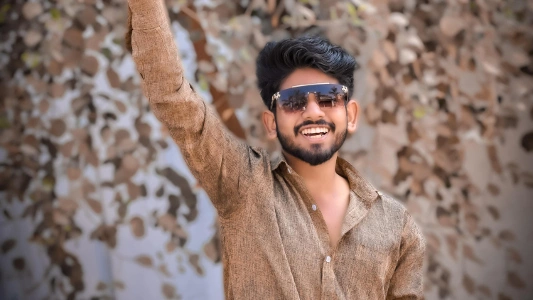Things I wish I could go back in time and tell myself, as a diabetic

How often have you wished you could go back and change the past?
And then the realisation hits you, and you start compromising. You say, “Okay, maybe not change, but at least prepare myself for what’s to come. Because if I knew what was ahead, it would be a little easier to deal with.”
When I was first diagnosed with diabetes, these thoughts ran through my head a lot. I knew I couldn’t do anything to avoid it – I wasn’t diagnosed particularly young (like most type 1 diabetics), and my lifestyle wasn’t at fault.
But to have the opportunity to at least prepare?
Time and time again, I’ve thought “Oh my God, I wish I could have told myself this before.”
My main challenge at the time of my diagnosis was simply how overwhelmed I was. Everything happened so fast that I didn’t spend any time actually processing it. I remember thinking about college (that I had to take a break within a month), my mother, my first-ever HbA1c test, how to use an insulin injector, etc. I was just going with the flow and letting things happen rather than planning and putting conscious thought into it.
This was, of course, natural.
But if I had the chance? Here are 5 things I would have told myself that would have made things that teeny bit easier.
It can happen to anybody
The most difficult thing to deal with was the shock. I distinctly remember wondering how it could happen to me – Isn’t diabetes something older people get?
I also didn’t have time to process this shock because after the doctors saw my reports I was immediately hospitalised.
I wish I could tell myself to take a moment and simply accept and process it (instead of trying to think of anything at all I could do to ‘prevent’ my diagnosis).
It happens, and it can happen to anyone. It happened to me. It is what it is.
Get ready to support the emotions of your loved ones
In less than a day, my family was voicing their distorted beliefs – “This shouldn’t have happened. We did something wrong.”
My mom went into clinical depression.
My grandmother started blaming herself. She would come into my room, look at me, and then just space out for several minutes.
I eventually realised I didn’t have it in me to convince them over and over that it wasn’t their fault.
I took my mom and both grandmothers with me to see my endocrinologist. He also explained to them that it wasn’t their fault. It helped.
Prepare to handle unwanted questions
After my diagnosis people often asked, “Did you eat too many sweets?”, “How long will you have to take insulin for?”, and many other irritating questions.
I wish that, as well as telling myself to actually process what was happening, I could tell myself to start thinking of witty comebacks for ignorant questions.
In hindsight, I think my evasiveness when asked these questions just made people more curious. If I’d known that giving them an answer (rather than ignoring them or getting irritated) would actually be helpful, it would have been easier.
Say “no” to things you don’t believe in
‘Indian remedies’ are known across the world. Ayurveda and many others began in India and then spread elsewhere. Naturally, 9 out of 10 people I met after my diagnosis gave me advice for alternative remedies – Kadhas (potions), removing nazar (reducing the effects of the evil eye), etc.
For about a year, I tried most of it.
I had hot water boiled with mango leaves. I had powders mixed with water made by ayurvedic practitioners. And many others.
Some of these remedies were forced on me, but most were me reaching out in the hope that something might just work. I felt that if I did enough, maybe I’d find one that could truly reverse my condition.
I distinctly remember thinking, “I don’t want to regret not trying.”
But in the end, I sincerely wish I could go back in time and tell myself that these techniques simply don’t work. And that I don’t have to try them just to please people or get them off my back.
You can say, “No”.
It’s okay to be upset
My biggest wish is that I could tell myself that having diabetes isn’t ‘okay’. That it’s not right or desirable.
There’s no point sugarcoating it, telling yourself it’s fine, or that other people are dealing with much worse.
I indulged in these ‘toxic positive statements’ and I wish I hadn’t. It definitely didn’t make me feel any better – All it did was make me feel guilty for feeling bad.
I wish I could tell that to myself and anyone else who is newly diagnosed.
Instead, the best thing to do is acknowledge the reality of the situation, recognise that it sucks, and then accept it and move on to thinking about things that you can actually control and change.
Looking for more stories like this?
Harsh was born with type 1 diabetes. At 21, he feels diabetes forced him to mature early. But it’s taught him valuable life lessons, and made him stronger.
Harsh was born with type 1 diabetes. It’s made his life a constant battle. But he refuses to let it define him, and has learned to live beyond it.
At 5 years old, Devika’s son was diagnosed with type 1 diabetes and their whole world changed. But together they learned how to manage their new normal.








